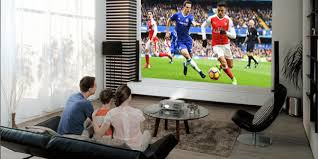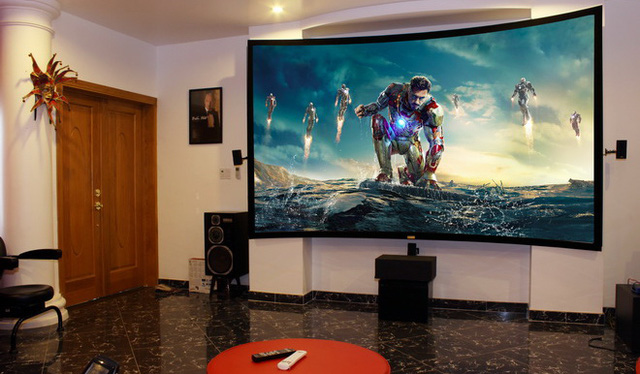Tag: Projector

Things to Consider When Choosing A Projector for Watching Sports
November 18, 2020
When it comes to sports projectors, there are a variety of options along with a few considerations. Here is a list of some of the most important things that you must consider if you want to choose a projector for watching sports.
Brightness of The Projector
The first thing you must consider is its brightness level. It is showed in ANSI lumens, varying from one projector model to another. The brightness level affects how visible is the projected imagery. You must also consider the amount of ambient lighting in the space where you will use the sports projector. A high level of ambient lighting will impact negatively on the visibility of the projected images.
– Spaces with a low amount of ambient lighting should consider a projector from 1,000 to 2,000 lumens.
– Areas with a medium amount of ambient lighting will do fine with a projector around 1,500 – 3,000 lumens.
– Rooms and halls that receive ample light will require a projector with at least 3,000 lumens.
Note that even if two projectors have the same lumens rating, the brightness of the images may still differ, depending on the quality of the light source it employs.

Native Resolution of The Projector
Another thing you need to consider when choosing a sports projector is its native resolution, which determines the quality and clarity of the projected images. Projectors are commonly available in 4K resolutions (3840×2160 or 4096×2160), Full HD (1920×1080), WXGA (1280×800), and XGA (1024×768). Projectors with XGA resolution are cheap but provide lower quality images than projectors with a higher resolution. Projectors with 4K resolution are quite expensive and provide unmatched image quality.
Projectors with Full HD are the perfect option for sports fans. Most TV broadcast signal in Full HD resolution, allowing you to make the most use of a 1080p projector. Projectors with WXGA resolution support the widescreen format.

Home Theater: How to Choose The Best Projector
December 26, 2019
The central and most important central equipment for a home theater is a projector. Unlike office projectors, home projectors usually have a wide aspect ratio of 16: 9 and are designed specifically for movie projection.
When deciding on a projector, you should not rely too much on the specifications given by the manufacturer as they tend to be overblown to reality. It’s best to look for information about the machine through the reviews of experts, or from the tech community, and then watch the demo of the machine directly at the shop selling projectors.

Usually, we can easily distinguish home projectors from office projectors. Office projectors often have a high brightness of over 3,000 lumens due to being used in a bright office environment. However, the contrast of the device is quite low, below 3000: 1. Whereas the projectors have lower brightness because they are used mainly in dark rooms, but give very realistic colors and tens of thousands of contrast.
With the development of technology, the quality of home cinema projectors has been constantly improved, and besides, the price has been pushed down to an unprecedented affordable level.
With an investment under $ 1300, you can consider already popular models such as Optoma HD25LV, BenQ W1070 or ViewSonic 7820HD. These projectors all have Full-HD resolution and are equipped with 3D projection feature.
With a higher investment of $ 2100, you can consider high-end models such as Epson TW8100, Optoma HD8300, BenQ W7000 or Panasonic PT AE8000. Of course at this price, the quality can satisfy even the most demanding audience.
A major concern of projector users is the lifetime of the projector lamp. This issue is currently being addressed by projector vendors. And the lamp life has been increased to over 5,000 projection hours. This means you can enjoy thousands of movies without having to consider replacing the light bulbs. The price of genuine light bulbs currently ranges from 200 to 300 USD depending on the company.
As for the camera body, carriers usually offer a 2-year warranty, especially up to 3 years. In order to be assured of using the device, the advice given to users is to choose reputable suppliers and have a good after-sales warranty to buy the machine.